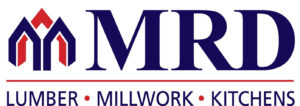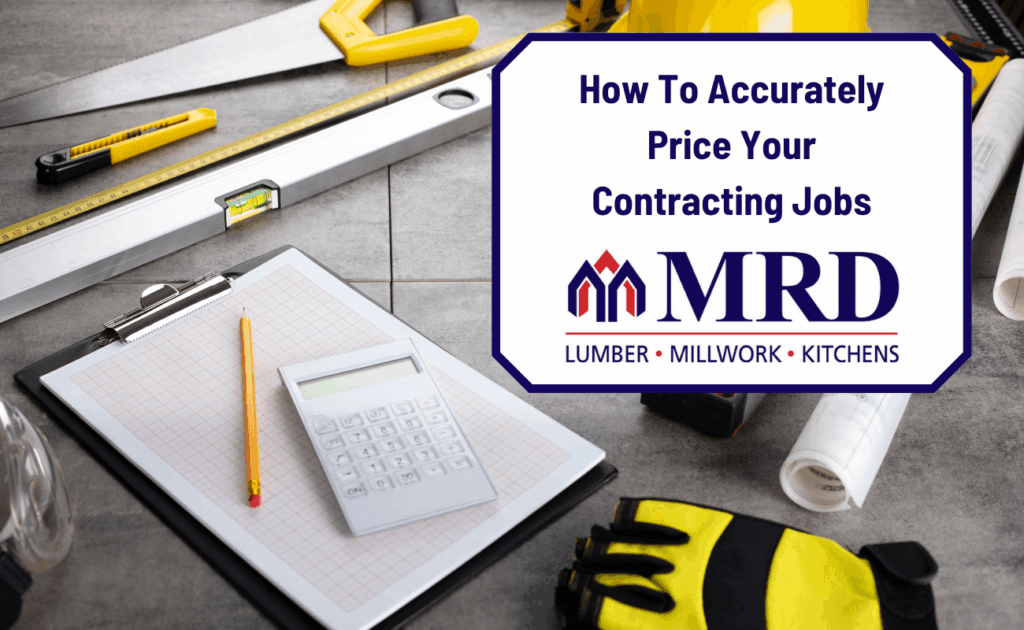One of the most challenging aspects of being a contractor is knowing how to accurately price jobs. A poor estimate can set your business back and lead to weeks of headaches. That’s why it is so important to make sure that you price jobs in a way that is appealing to your customers but won’t leave you financially strapped either. Let’s dive into things to consider to help you price your contracting jobs effectively.
Consider Fixed Costs In Contracting Jobs
This guide won’t be a full-scale economics lesson, but it will help you understand the two main types of costs your business will face. Fixed costs are expenses that you will have to pay regardless of how much business you do. These costs include things like insurance, loan payments, vehicle payments if you have a work van or truck, license fees, and any other expense where you pay the same amount every month. These costs are tricky because even if you only have 1 or 2 jobs in a month, you will still be responsible for paying them. When pricing jobs, make sure that you will make enough money to cover these costs and have enough left over for the next kind.
Understand Your Contracting Business’s Variable Expenses
Once you consider your business’s fixed costs, you’ll have to prepare for variable costs. Variable costs are expenses that will increase depending on the amount of work your business does. These costs include taxes, gas, labor for employees, and any cost that goes up in proportion to the number of hours worked, jobs completed, revenue earned, or other variables.
Perhaps the most important variable expense is building materials. Just like the other expenses mentioned above, the amount that you spend on materials will heavily depend on the amount of work done. While this isn’t a perfectly proportional variable expense, the principle still applies. When pricing jobs for your contracting business, keep in mind that the more work you do, the higher your variable costs will be.
Why Building Material Costs Are Important To Consider When Pricing Contracting Jobs
Like we mentioned above, building material costs are a variable cost that plays a significant role in the overall price of a job. But not only do these costs increase based on how many materials you have to purchase, but these prices also fluctuate over time on their own. One month the lumber you need for a job might cost $2000, but the next month the same amount of material might cost $2500. Lumber specifically is one of the most volatile materials in terms of purchase price. The price of lumber you use to estimate a job six months ahead of time might end up being significantly over the price you quoted, leaving you to have to cover the difference. For this reason, it is extremely important to consider the fluctuations in the price of lumber and other building materials.
How Do You Account For Changing Lumber & Material Costs In Your Contracting Pricing?
In order to consider how your costs will change with the rises and falls in the price of lumber, you should price your jobs within a range that will cover the different ways that the price can change. For example:
- When The Job Is Next Week: When the job is coming soon and you can get the materials right away, you can price the job based on the current price of lumber and materials, and won’t have to take any variability into account
- When The Job Is Next Month: For jobs that won’t happen right away but are still on your radar, consider estimating $500-$1,000 over and under the current price so you can be prepared for however the market changes over that time
- When The Job Is Next Year: The further out the job is, the larger the range of your price should be. The market price can change quite a bit, so make sure to give yourself lots of wiggle room for whatever the price comes out to when it comes time to buy materials. A variability of $2,500-$5,000 is not unreasonable, and can be more depending on how big the project is
MRD Is Here To Help Contractors With Building Materials & More
Knowing how to properly price your work can be challenging but very rewarding if done correctly. Luckily, PA contractors don’t have to go about this alone. MRD Lumber partners with contractors for quality building materials at the best prices, as well as advice and support from a professional team with years of industry experience. We are more than just another supplier and are here to help your contracting business succeed.
For top-tier lumber and building materials for kitchens, bathrooms, decks, floors, and more, as well as custom millwork for any project, MRD Lumber is to place to turn to. Contact us today and speak with our team to find out what we can do for your PA contracting business.

